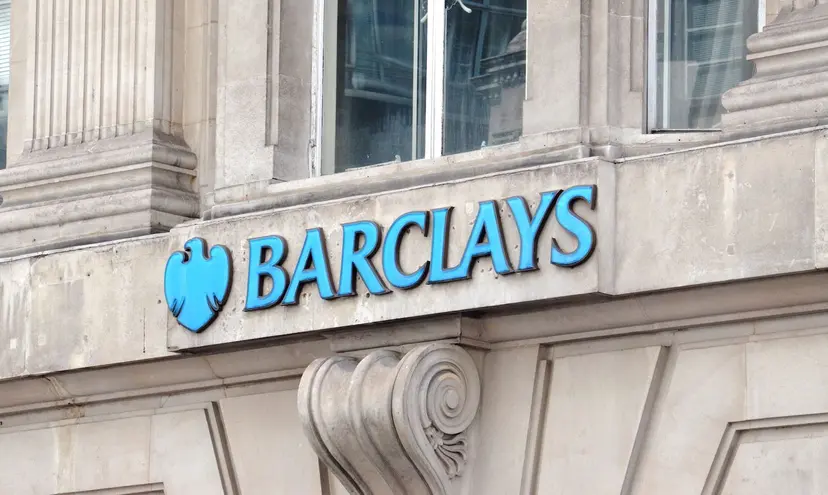Barclays has already announced that it will from now on limit the possibility of its customers to carry out transactions with cryptocurrencies using its credit and debit cards. From June 27, 2025, users are not allowed to buy cryptocurrencies through Barclaycards. This decision has recently taken place in light of the increased4 worries related to consumer borrowing, price instability, and regulatory confusion in the field of cryptocurrencies.
Rising Debt and Regulatory Pressure Trigger Action
Barclays told the Press that their intention is to shield customers from losses and the anathema of overspending on the uncertain assets. Cryptocurrencies are one of those assets that most people believe are very volatile. The majority of retail clients have resorted to financial leverage to invest in these assets. At the same time, the bank reaffirmed that a sudden price downfall could lead to users incurring liabilities that are difficult to be serviced.
It was also mentioned by Barclays that despite their growth in popularity, cryptocurrency assets do not get the same level of protection from industry bodies as traditional financial instruments. That is why, currently, the consumer is left without protection in case of scams and the bankruptcy of the service provider. According to Barclays, there is no customer ombudsman to come to the rescue in such cases.
Silent Rollout, Clear Statement
The update in the policy was done in a quite manner on the website and there was no big announcement regarding the issue. As per the new terms, Barclays, clearly stated that it is “not possible to make cryptocurrency transactions using a Barclaycard.” Even though the bank didn’t release a press statement, the update has made some people both crypto enthusiasts and financial experts aware of it.
UK Banks Tighten Crypto Controls
The withdrawal of Barclays is part of a larger trend that is happening in the British banking system. Institutions such as HSBC, NatWest, Lloyds, and Santander have been barring their clients from making payments with credit cards at crypto businesses. HSBC, for instance, even prohibited credit card cryptocurrency purchases as far back as 2018, while other banks have imposed transaction limits or stopped payments to crypto exchanges entirely.
The transformation indicates that there is a collaboration between long-established financial institutions to keep retail exposure away from unregulated virtual currencies.
Regulatory Backdrop: FCA and Bank of England in Focus
The switch has been made in an environment of increased watchfulness over regulations. Previously, this month the Financial Conduct Authority (FCA) released a paper of discussion revealing the potential threats regarding credit-card-facilitated crypto purchases. The Bank of England has also commented they are going to come up with stricter rules (cryptocurrency-related) for the banks over the next 5 years.
By implementing restrictions now, Barclays positions itself ahead of potential mandates, ensuring compliance and reinforcing its risk management policies.
Card Purchases Blocked, but Wallets Unaffected
It is essential to understand that Barclays’ limitations are 100% targeted at payments using only debit or credit cards. Customers, however, are still free to move, hold and withdraw their cryptocurrency across other methods. Nevertheless, they must carry out such operations by crediting them with transfers from the bank or the platforms that are not linked to Barclaycards.
The bank also suggests that the users get themselves acquainted with the crypto risks through the consultation of independent financial experts and regulatory authorities.
A Split Approach: Retail Caution vs Institutional Interest
Despite the fact that Barclays tightens the noose on retail1 crypto purchases, it is still carrying out digital assets operations at the institutional level. There were some rumors at the beginning of the year that the bank had been taking a large share of a significant Bitcoin ETF. The situation is thus: the bank is protecting the consumers from risky investments and, at the same time, it is partaking in the regulated crypto market.
Mixed Reaction from the Community
The crypto community was divided over Barclays’ decision to implement4 new restrictions. Consumer protection groups rather see it as a friendly measure that keeps the consumers safe from reckless borrowing. Opposite to this, crypto supporters are convinced that the decision restricts users’ access to a product, which is not only legitimate but also they have the right of choice.
Some industry voices believe such actions equate crypto with gambling and undermine innovation by treating all users as high-risk.
Key Takeaways for Barclays Customers
- Crypto transactions using Barclaycards are now blocked as of June 27, 2025.
- Only card-based transactions are restricted — customers can still use bank transfers.
- The move follows rising concerns over crypto-related debt and lack of regulation.
- Barclays aligns with other UK banks and regulatory expectations.
Final Thoughts
Barclays’ latest policy reflects a broader shift among traditional banks as they reassess their role in the crypto economy. By tightening access for retail clients while exploring institutional opportunities, Barclays is walking a fine line between innovation and responsibility. With more regulatory frameworks on the horizon, the bank’s decision may soon become the norm rather than the exception.
Also Read: Hong Kong to Criminalize Unlicensed Stablecoin Promotions Starting August 1













